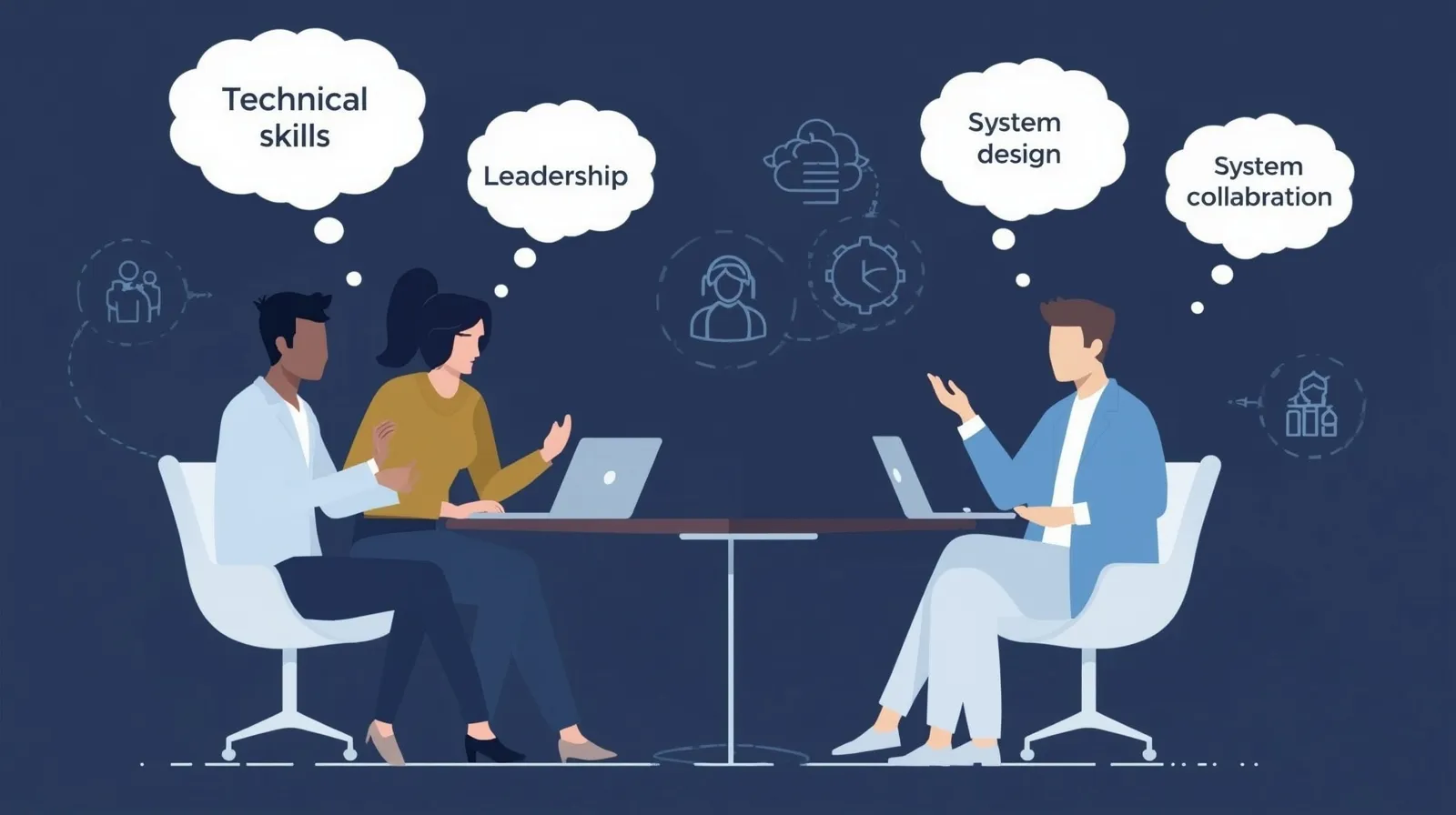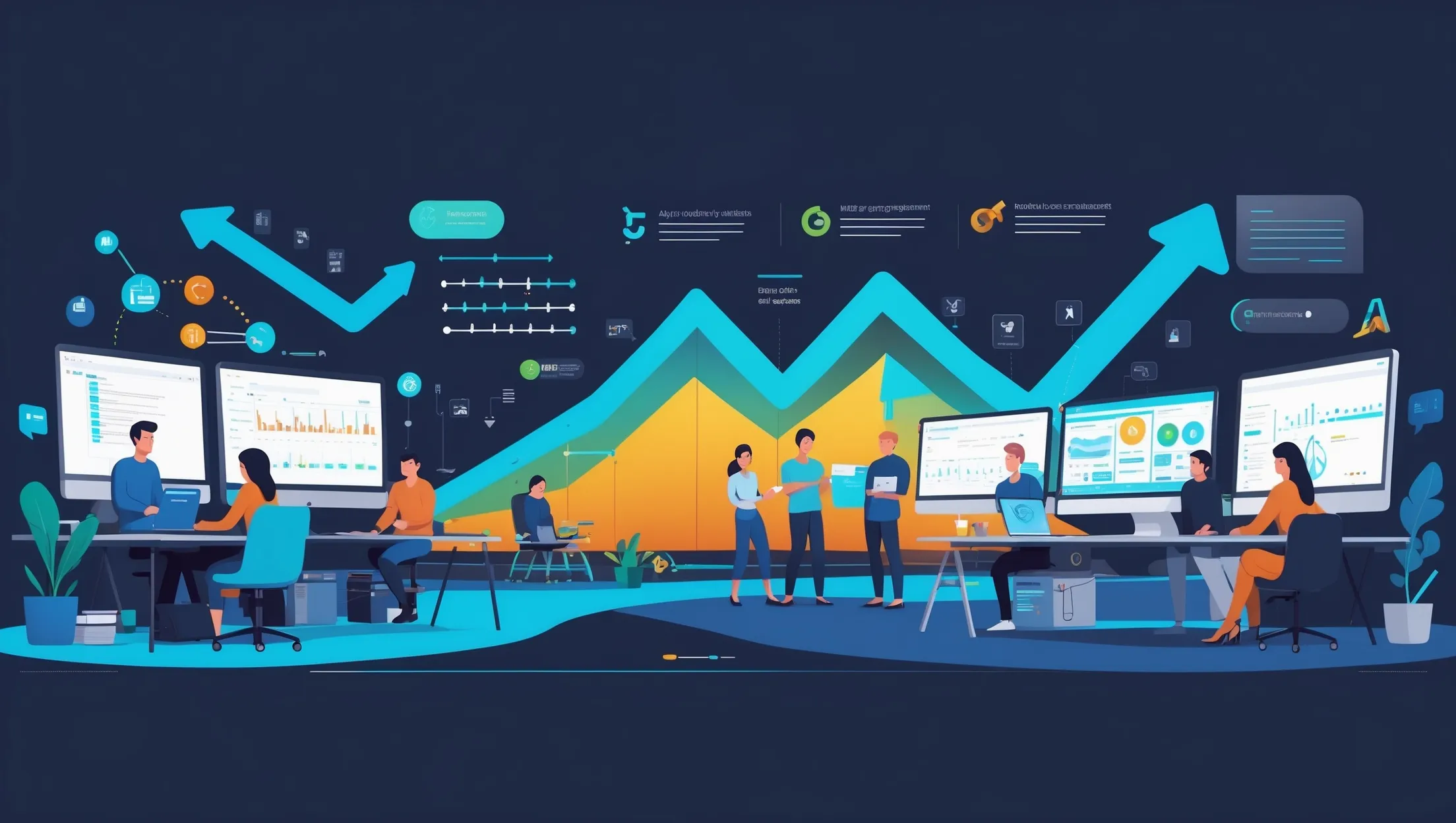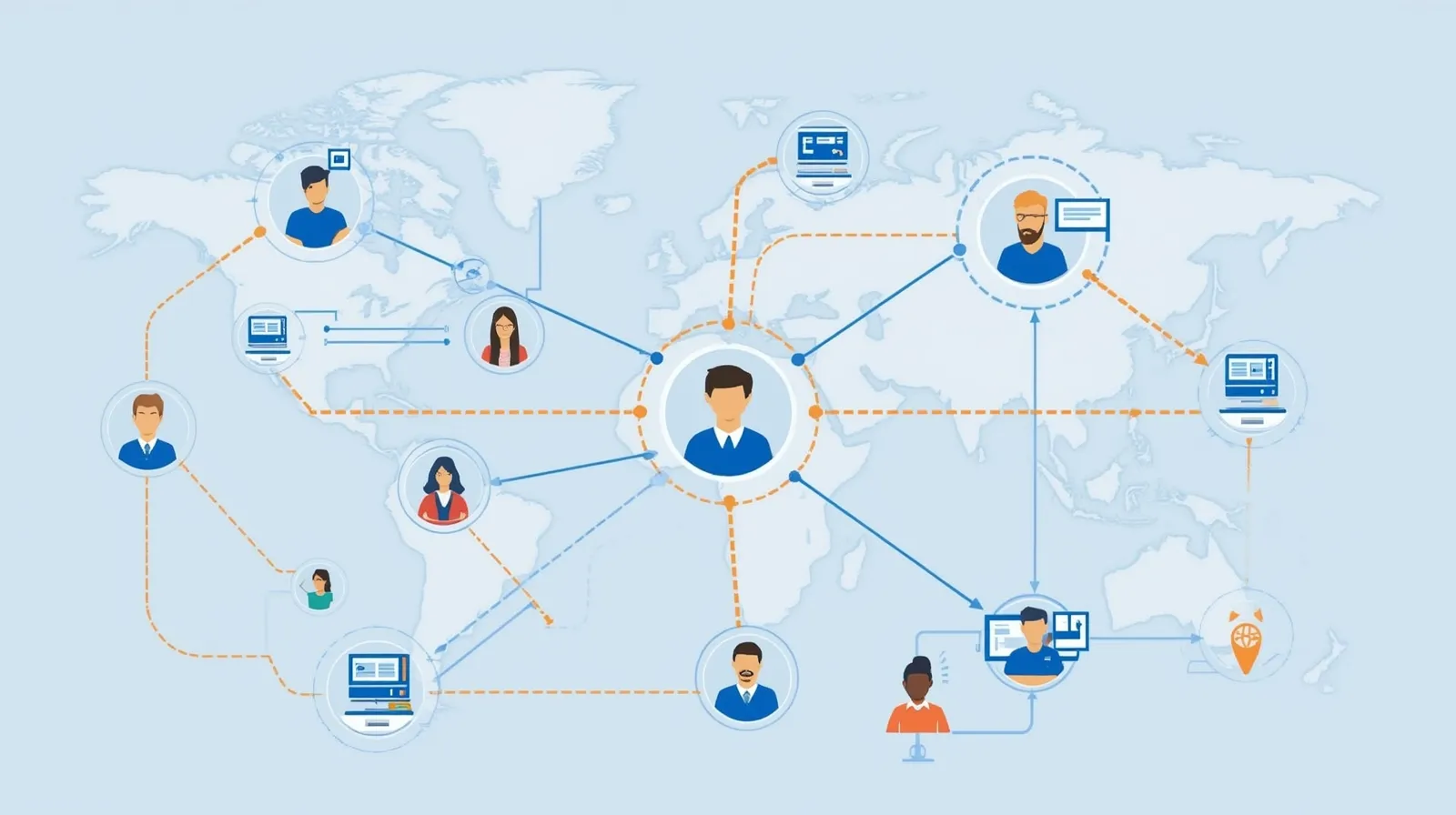
Hiring senior engineers: Beyond the technical interview
How to identify and attract senior engineers who will elevate your team's performance and culture
Hiring senior engineers is fundamentally different from hiring junior developers. While junior hires are often evaluated primarily on technical potential and cultural fit, senior engineers must demonstrate proven ability to drive complex projects, mentor others, and make architectural decisions that impact the entire organization.
The challenge is that traditional technical interviews often fail to evaluate these crucial senior-level capabilities. You end up hiring engineers who can solve algorithm problems but struggle with the ambiguous, high-stakes decisions that define senior roles.
After building multiple engineering teams and conducting hundreds of senior engineer interviews, I’ve developed a framework for identifying candidates who will truly elevate your team’s performance.
What makes a senior engineer senior
Senior engineers aren’t just developers with more years of experience. They’re force multipliers who improve everything around them. Here’s what distinguishes them from mid-level engineers:
Systems thinking over feature thinking: Senior engineers consider the broader system impact of their decisions. They ask questions like “How will this affect performance at scale?” and “What happens if this service goes down?” They design solutions that are maintainable, observable, and resilient.
Ownership mentality: They take responsibility for outcomes, not just outputs. If a feature they built causes production issues six months later, they feel accountable for fixing it, even if they’ve moved to a different team.
Teaching and mentoring: They actively help others grow. This isn’t just about formal mentoring relationships but about code reviews that teach, documentation that shares knowledge, and architecture decisions that consider team learning.
Comfort with ambiguity: Senior engineers thrive in situations where requirements are unclear or changing. They ask the right questions to reduce uncertainty and make progress despite incomplete information.
Facing a leadership challenge right now?
Don't wait for the next fire to burn you out. In a 30-minute discovery call we'll map your blockers and outline next steps you can use immediately with your team.
Designing effective senior engineer interviews
Traditional coding interviews miss most of these qualities. Here’s how to structure interviews that actually evaluate senior capabilities:
The system design interview
Present a real problem your company faces. Don’t use generic examples like “design Twitter.” Ask them to design a solution that considers your specific constraints, scale requirements, and technology stack.
Pay attention to their questions. Great senior engineers will ask about current architecture, performance requirements, team size, and operational constraints before proposing solutions. They should demonstrate understanding of trade-offs between different approaches.
Look for candidates who discuss monitoring, alerting, failure modes, and operational concerns. Junior engineers often focus only on the happy path. Senior engineers think about what happens when things go wrong.
The technical mentoring simulation
Give the candidate a piece of code written by a fictional junior engineer and ask them to review it as if they’re mentoring that person. The code should have several issues: performance problems, security concerns, maintainability issues, and missing edge cases.
Evaluate how they provide feedback. Do they point out problems constructively? Do they explain why issues matter? Do they suggest alternative approaches and explain the trade-offs? Do they consider the junior engineer’s learning and growth?
This exercise reveals both technical depth and communication skills. Great senior engineers can explain complex concepts clearly and help others improve without being condescending.
The incident response scenario
Walk through a real incident your team experienced (anonymized if necessary). Describe the symptoms, timeline, and ultimate resolution. Ask the candidate how they would approach investigating and resolving the issue.
Strong candidates will ask clarifying questions about monitoring tools, system architecture, and incident response processes. They’ll demonstrate systematic debugging approaches and consider communication strategies for keeping stakeholders informed. To evaluate their responses effectively, understand proven frameworks for systematic incident response and debugging.
Look for candidates who think about prevention, not just resolution. After discussing how to fix the immediate problem, they should suggest process improvements, monitoring enhancements, or architectural changes to prevent similar issues.
Coaching for Tech Leads & CTOs
Ongoing 1:1 coaching for startup leaders who want accountability, proven frameworks, and a partner to help them succeed under pressure.
Evaluating cultural and leadership potential
Technical skills are table stakes for senior engineers. The differentiating factor is often their ability to elevate team culture and lead technical initiatives.
Collaboration and influence
Ask about times they’ve had to convince team members or stakeholders to adopt a different technical approach. How did they build consensus around controversial decisions? How did they handle pushback or resistance?
Great senior engineers use data, prototypes, and clear communication to influence technical decisions. They can disagree respectfully with colleagues and find win-win solutions to technical conflicts.
Learning and adaptation
Technology changes rapidly, and senior engineers must continuously learn new tools, frameworks, and approaches. Ask about recent learning experiences: What new technology have they adopted? How did they evaluate it? What challenges did they face?
Look for candidates who can articulate their learning process and show intellectual curiosity. They should have opinions about technology trends and be able to discuss trade-offs between different approaches thoughtfully. In today’s AI-enhanced development landscape, senior engineers who can effectively guide AI tool usage are particularly valuable.
Project leadership without authority
Many senior engineers lead technical initiatives without formal management authority. Ask about complex projects they’ve driven: How did they coordinate with multiple teams? How did they handle scope changes or technical challenges? How did they ensure quality and timelines?
Strong candidates will describe clear communication strategies, stakeholder management, and technical project management skills. They understand that successful technical leadership requires influencing people and managing relationships, not just making technical decisions.
Red flags to watch for
Not every experienced engineer is ready for senior responsibilities. Here are warning signs that suggest a candidate might struggle in a senior role:
Narrow technical focus: They can’t discuss technology outside their specific expertise area or show little interest in broader system concerns.
Blame-oriented thinking: They consistently attribute past project failures to external factors (bad management, unclear requirements, or inadequate resources) without acknowledging their own role or learning.
Resistance to feedback: They become defensive when you probe deeper into their technical decisions or suggest alternative approaches during the interview.
Hero mentality: They prefer working alone and express frustration with collaborative processes like code reviews, pair programming, or technical discussions.
Technology maximalism: They always advocate for the latest tools and frameworks without considering team capabilities, business constraints, or migration costs.
Attracting senior talent to your team
Great senior engineers have options. They’re not just looking for higher compensation but want opportunities to work on interesting problems with smart people in a supportive environment.
Showcase technical challenges: Be specific about the interesting problems your team solves. Instead of saying “we work with big data,” describe specific scale challenges, performance optimizations, or distributed systems problems you’re tackling.
Highlight growth opportunities: Senior engineers want to continue developing their skills. Describe opportunities for architectural decision-making, cross-team collaboration, mentoring responsibilities, or exposure to new technology domains.
Demonstrate team quality: The quality of future colleagues matters enormously to senior engineers. Arrange conversations with team members during the interview process. Let candidates see the technical discussions and collaborative culture they’d be joining.
Show leadership support: Senior engineers want to know that leadership values technical excellence and invests in engineering productivity. Discuss recent infrastructure improvements, technical debt initiatives, or developer experience enhancements.
Got a leadership question?
Share your toughest challenge and I might feature it in an upcoming episode. It's free, anonymous, and you'll get extra resources in return.
Building an interview process that works
Your interview process should be challenging enough to evaluate senior capabilities while being respectful of candidates’ time and experience level.
Multiple perspectives: Include individual contributors, peer managers, and senior leadership in the interview process. Each group evaluates different aspects of senior readiness.
Take-home projects: For senior roles, consider take-home projects that mirror real work challenges. This gives candidates a chance to demonstrate their approach to problem-solving, code organization, and documentation.
Reference conversations: Senior engineers should have former colleagues who can speak to their technical leadership and collaboration skills. Have substantive conversations with references about specific projects and challenges.
Transparent timeline: Senior engineers often have complex notice periods and multiple opportunities. Be clear about your decision timeline and next steps throughout the process.
Onboarding senior engineers effectively
Senior engineers need different onboarding than junior developers. They don’t need basic development environment setup assistance, but they do need deep context about systems, decisions, and relationships.
Architecture deep-dive: Schedule dedicated time with senior team members to walk through system architecture, key design decisions, and areas of technical debt. This helps them understand the codebase quickly and identify potential contributions.
Stakeholder introductions: Arrange introductions to key product managers, designers, and business stakeholders. Senior engineers need to understand user needs and business constraints to make effective technical decisions.
Early ownership: Give them meaningful technical challenges within their first month. Senior engineers are motivated by having real impact quickly, not by extended onboarding periods.
Historical context: Share the story of how current systems evolved, including past architectural decisions, migration experiences, and lessons learned. This prevents them from suggesting solutions you’ve already tried and helps them understand current constraints.
The investment in hiring great senior engineers pays dividends for years. They accelerate project delivery, improve technical decision-making, and develop the engineers around them. But it requires a thoughtful approach that goes beyond traditional technical interviewing to evaluate the leadership and system thinking capabilities that define senior engineering roles.
📈 Join 2,000+ Tech Leaders
Get my weekly leadership insights delivered every Tuesday. Team scaling tactics, hiring frameworks, and real wins from the trenches.
Related Articles

Build vs buy: the technical decisions that make or break startups
Master the art of build vs buy decisions that determine your startup's technical trajectory. Learn the decision framework that successful CTOs use to balance development resources, time to market, and long-term flexibility with real case studies and actionable guidelines.

Scaling from 1 to 10 engineers: the growth stages nobody talks about
Navigate the hidden challenges of scaling your engineering team from 1 to 10 people. Learn the critical transitions, cultural shifts, and system changes that determine whether your team thrives or fragments during rapid growth, with practical frameworks from successful CTOs.

Leading remote engineering teams effectively
Practical strategies for building high-performing distributed engineering teams and maintaining strong collaboration across time zones
